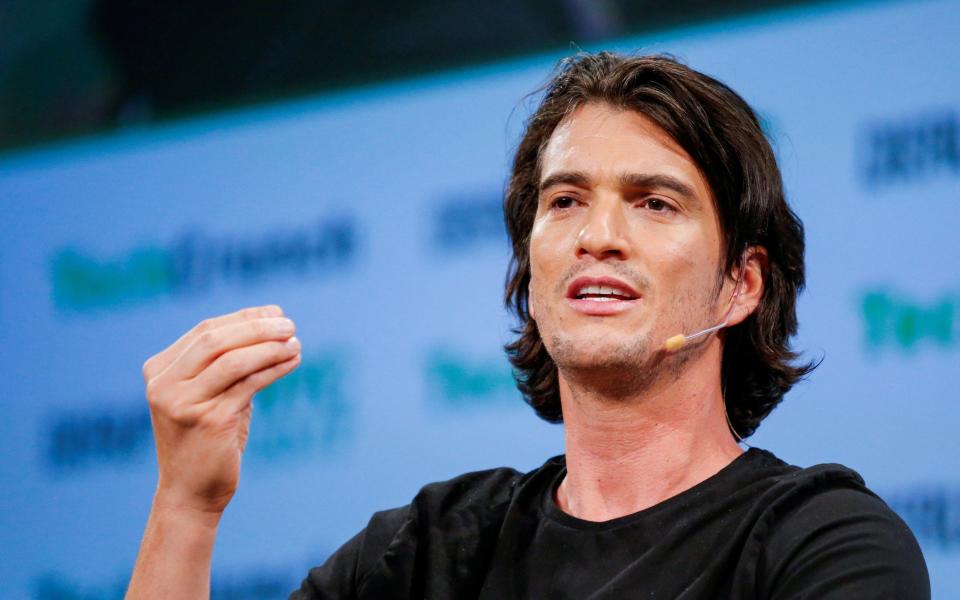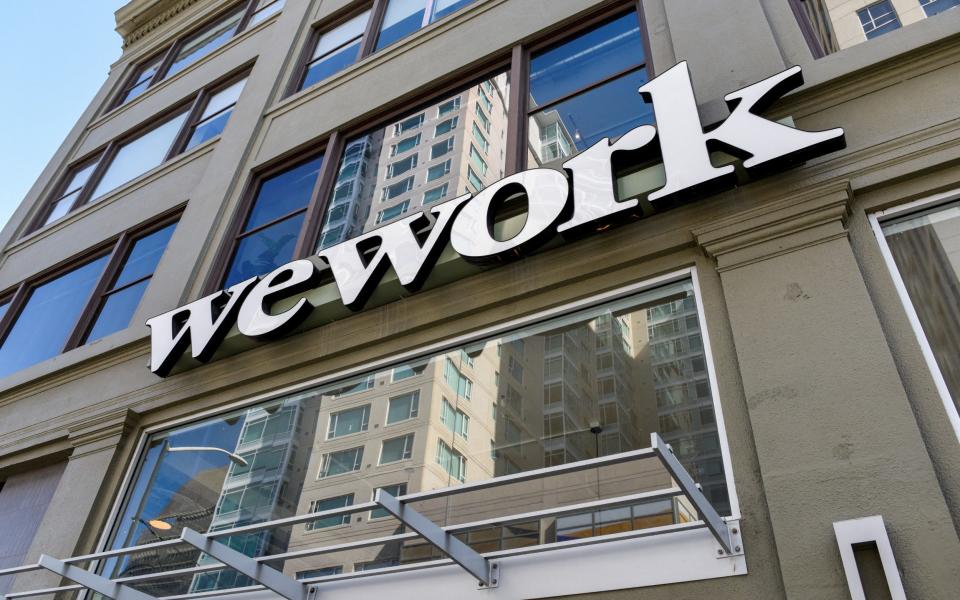WeWork, the SoftBank Group-backed start-up that was once a darling of Silicon Valley valued at $47bn (£38.7bn), has filed for bankruptcy in the United States.
The flexible workspace company, whose meteoric rise and fall reshaped the office sector globally, is seeking Chapter 11 bankruptcy protection after its bets on companies using more of its office-sharing space soured.
The move represents an admission by SoftBank, the Japanese technology group that owns about 60pc of WeWork and has invested billions of dollars in its turnaround, that the company cannot survive unless it renegotiates its pricey leases in bankruptcy.
The firm reported liabilities of up to $50bn, according to a bankruptcy filing in a New Jersey court.
The filing gives WeWork some legal protection from creditors as it negotiates more favourable leases with landlords.
“I am deeply grateful for the support of our financial stakeholders as we work together to strengthen our capital structure and expedite this process through the restructuring support agreement,” WeWork chief executive David Tolley said in a statement.
“We remain committed to investing in our products, services, and world-class team of employees to support our community,” he added.
WeWork shares have fallen about 98.5pc so far this year and on Monday night were trading at just $0.84, down from $88.80 in February.
Profitability has remained elusive as WeWork grapples with its expensive leases and corporate clients cancelling because some employees work from home. Paying for space consumed 74pc of WeWork’s revenue in the second quarter of 2023.
The company reported estimated assets and liabilities ranging from $10 billion to $50 billion, according to a bankruptcy filing.
“WeWork could use provisions of the US bankruptcy code to rid itself of onerous leases,” law firm Cadwalader, Wickersham & Taft LLP said in a note to landlords on its website in August. Some landlords are bracing for a significant impact.
Under its founder Adam Neumann, WeWork grew to be the most valuable US start-up. It attracted investments from blue-chip investors, including SoftBank and venture capital firm Benchmark, as well as the backing of major Wall Street banks, including JPMorgan Chase.

Mr Neumann pursuit of breakneck growth at the expense of profits, and revelations about his eccentric behaviour, led to his exit and the derailment of an initial public offering in 2019.
SoftBank was forced to double down on its investment in WeWork, and tapped real estate veteran Sandeep Mathrani as the start-up’s chief executive. In 2021, SoftBank cut a deal to take WeWork public through a merger with a blank-cheque acquisition company at an $8 billion valuation.
WeWork managed to amend 590 leases, saving about $12.7 billion in fixed lease payments. But this was not enough to compensate for the fallout from the Covid-19 pandemic, which kept office workers at home.
Many of its landlords, who were also feeling the squeeze, had little incentive to give WeWork a break on the terms of their leases.
While WeWork had some success in signing up large conglomerates as clients, many of its customers were start-ups and smaller businesses, which cut their spending as inflation soared and economic prospects soured.
Adding to WeWork’s woes was competition from its own landlords. Commercial property companies that traditionally only entered into long-term rent agreements started offering short and flexible leases to cope with the downturn in the office sector.
Mr Mathrani was succeeded as WeWork boss this year by former investment banker and private equity executive Mr Tolley, who as chief executive of Intelsat helped the debt-stricken satellite communications provider emerge from bankruptcy in 2022.
WeWork engaged in debt restructurings, yet this was not enough to stave off its bankruptcy. The company last week secured a seven-day extension from its creditors on an interest payment, to win more time to negotiate with them.
Broaden your horizons with award-winning British journalism. Try The Telegraph free for 1 month, then enjoy 1 year for just $9 with our US-exclusive offer.
Credit: Source link




